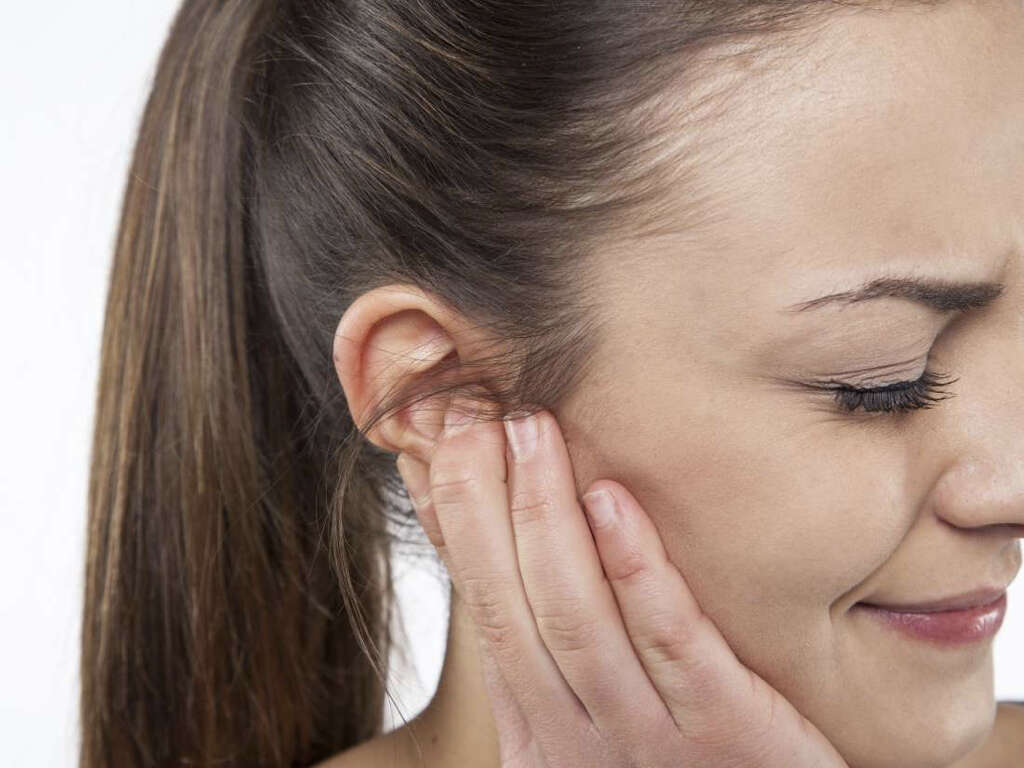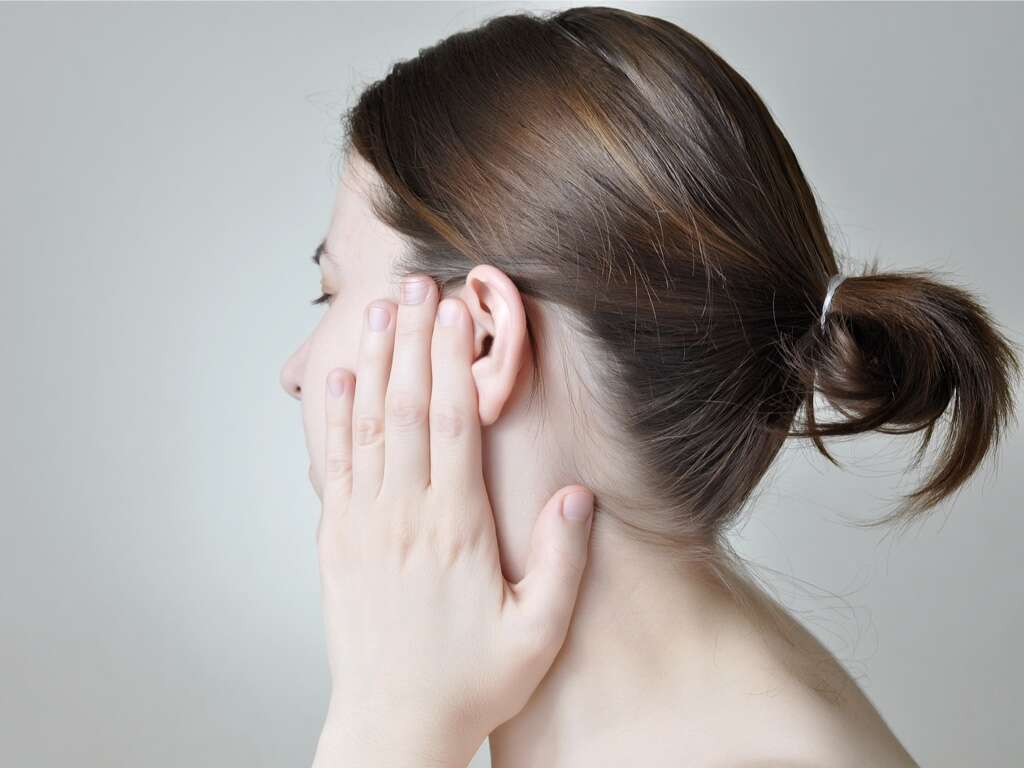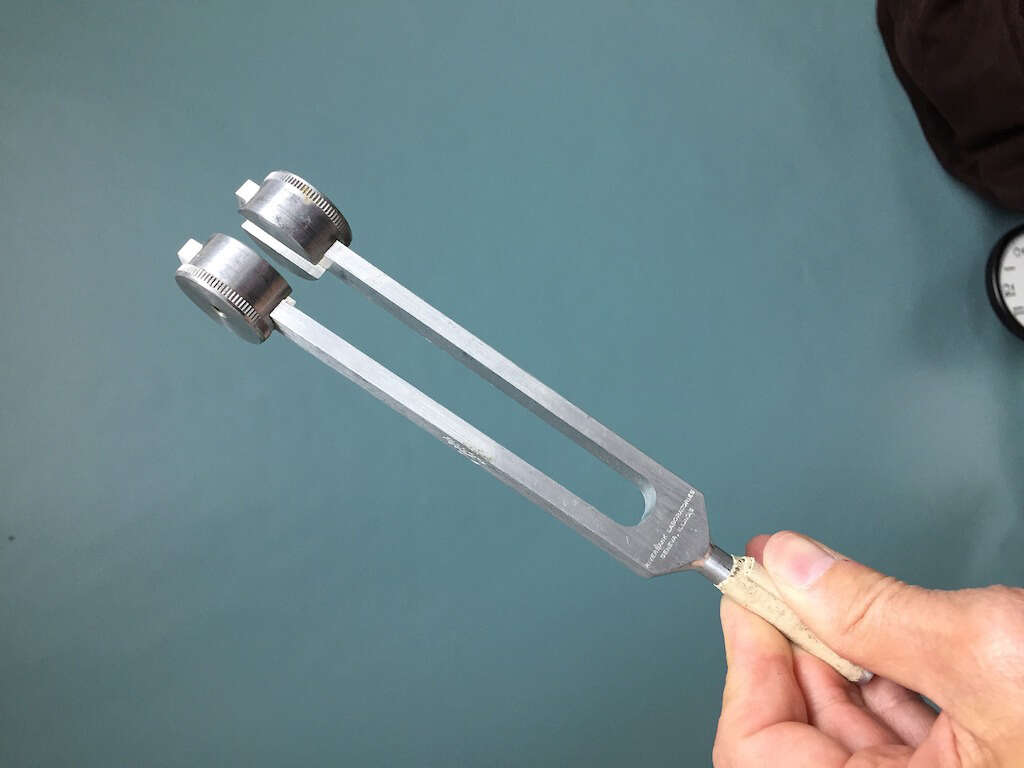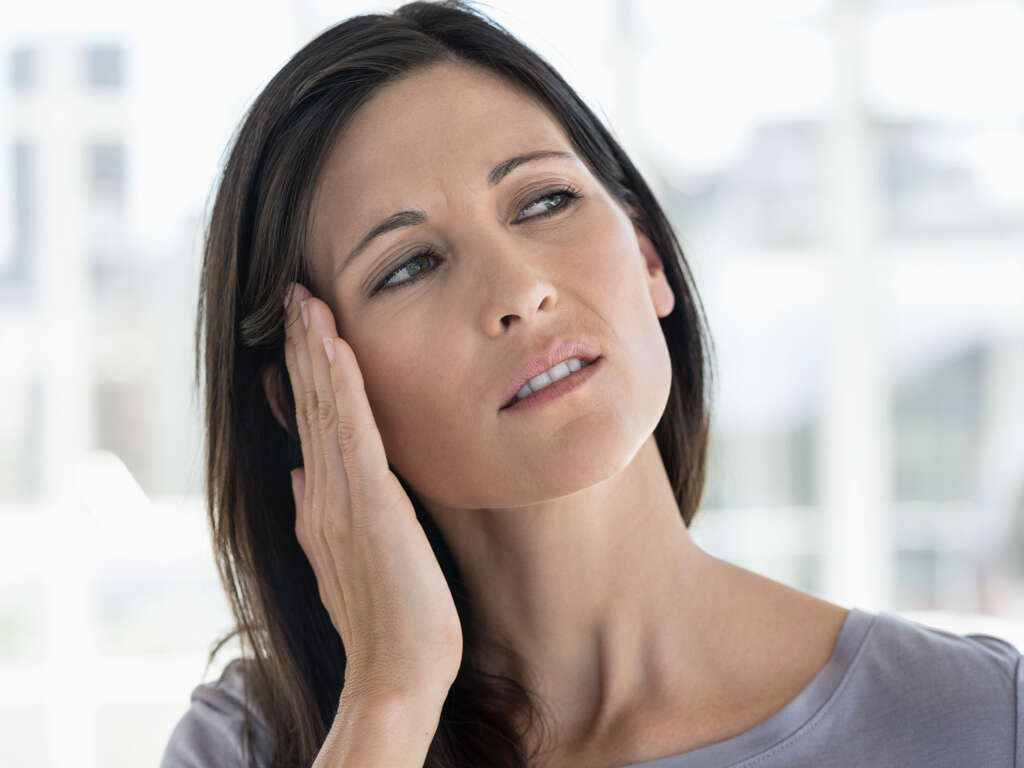10 Meniere's Disease Symptoms
Meniere’s disease is a balance and hearing disorder that mainly affects people between the ages of 40 and 60. The disorder affects the inner ear, whose roles include hearing and balance.
In most cases, Meniere’s disease affects only one ear and may go into remission within a few years after diagnosis. However, in many cases, Meniere’s disease is a chronic disorder. According to the National Institute on Deafness and Other Communication Diseases, NIDCD, about 45,500 new cases are diagnosed annually.
While the cause of Meniere’s disease is unknown, the disorder causes a buildup of fluid within the labyrinth. This distorts normal balance and interferes with the movement of hearing signals to the brain. When this happens, disruption of middle ear functions occurs, which leads to a range of symptoms. Below are the top 10 Meniere’s disease symptoms to be aware of.
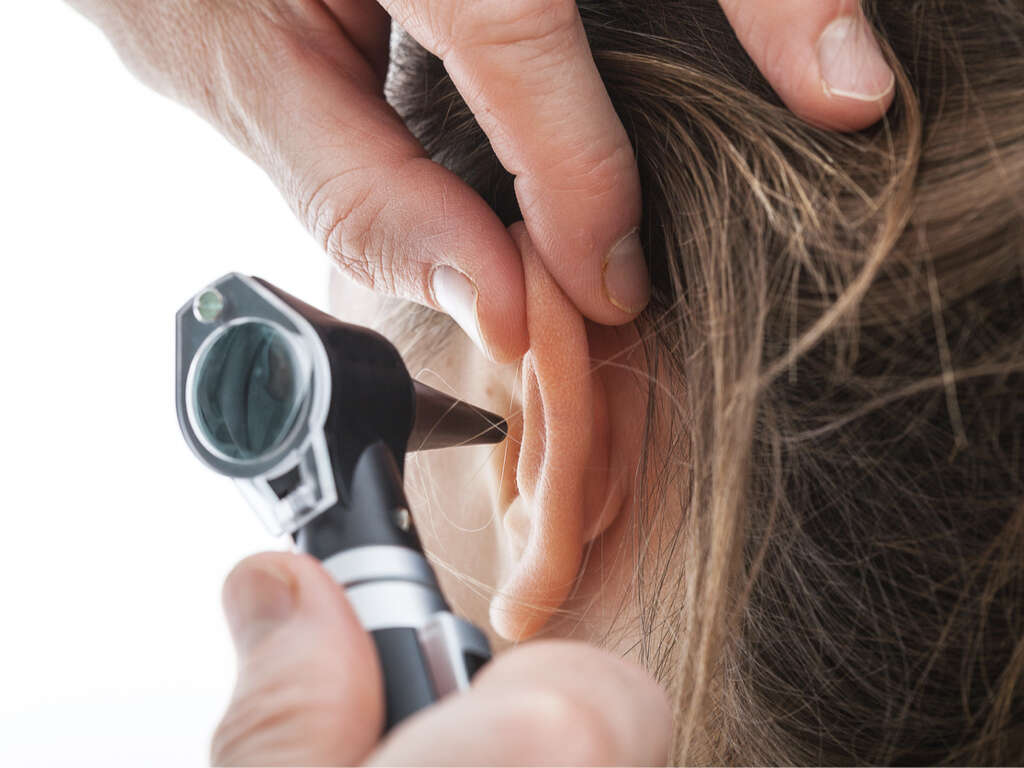
Symptom #1: Plugged-Up Feeling
Many people with Meniere’s disease feel that there is pressure in the affected ear. This plugged-up feeling is one of the major symptoms of Meniere’s disease in addition to tinnitus, hearing loss, and vertigo. The sensation usually comes and goes over and over. And while Meniere’s disease normally occurs in only one ear, the plugged-up feeling may be felt in one or both the ears.
There are many causes of this plugged-up feeling such as infections like bacterial otitis media, fluid behind the eardrum, or retracted eardrum. In some of these cases, examination of the eardrum may show some symptoms. However, in a Meniere’s disease patient, even repeated otoscopy examinations usually show that the eardrum is normal. For this reason, it helps to consult an ear health specialist.

Symptom #2: Tinnitus
Tinnitus or ringing in the ear is one of the most common symptoms of Meniere’s disease. The commonest description of tinnitus is ringing. However, some patients describe it as hissing, whistling, or buzzing. Tinnitus present differently in different patients. And while it is not painful, tinnitus causes a lot of discomfort.
Meniere’s disease affects the sensory area, which is the reason tinnitus occurs in many patients. In addition to tinnitus and depending on the severity of the disorder and the damage to the inner ear, a patient may also experience vertigo, which is a sensation of spinning dizziness and hearing loss, among other symptoms.

Symptom #3: Vertigo
Vertigo and imbalance are considered vague symptoms because they are indefinite and not clearly associated with any one condition. Vague symptoms are also associated with many other conditions. However, vertigo is a common symptom in cases of Meniere’s disease.
Besides playing the role of transferring sound signals to the brain, the inner ear also contains the organs responsible for maintaining balance. Meniere’s disease damages these organs and interferes with their operations. If you find that you are repeatedly experiencing imbalance or perceive the things around you to be moving, you are having vertigo. You should, therefore, pay your doctor a visit to find out its cause.
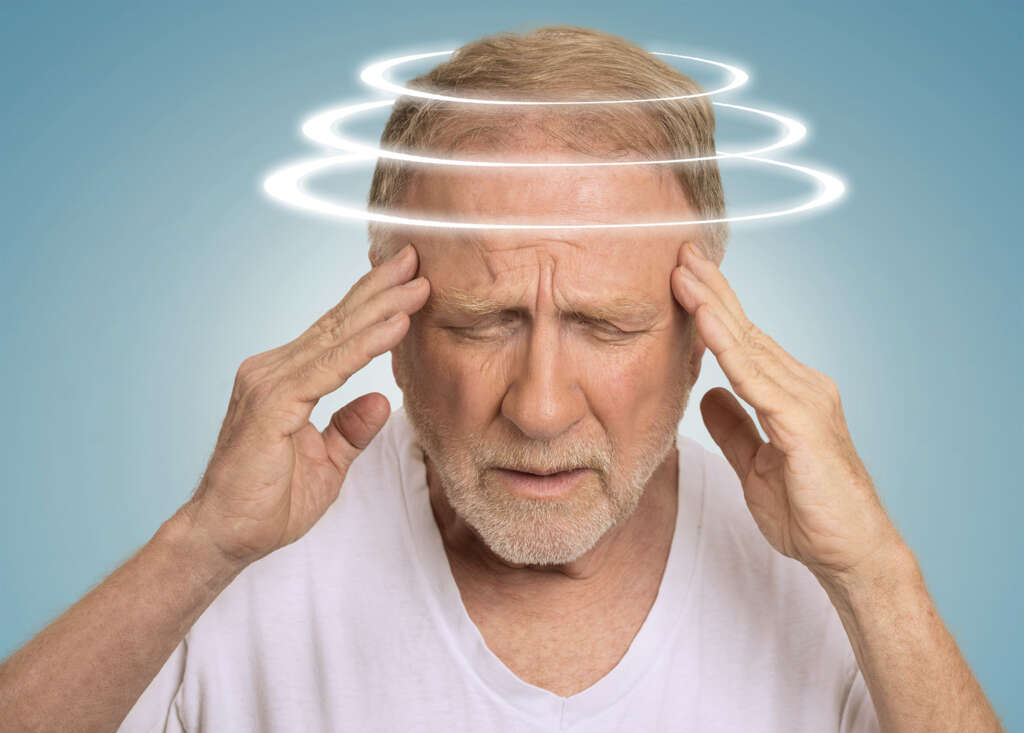
Symptom #4: Loss of Hearing
Meniere’s disease usually results in a temporary hearing loss in one ear. This is because the disorder attacks the structures of the inner ear. People with the condition describe their hearing loss as a plugged-up feeling within their ears. The sound is bizarre, tinny, and far away. They are also sensitive to sound.
The condition relieves when the fluid is removed from the ear. Once you feel that the sound has become fuzzy, distorted, and far away, pay your doctor a visit. The condition can improve significantly if treated at the beginning. Some cases of Meniere’s disease lead to permanent loss of hearing.
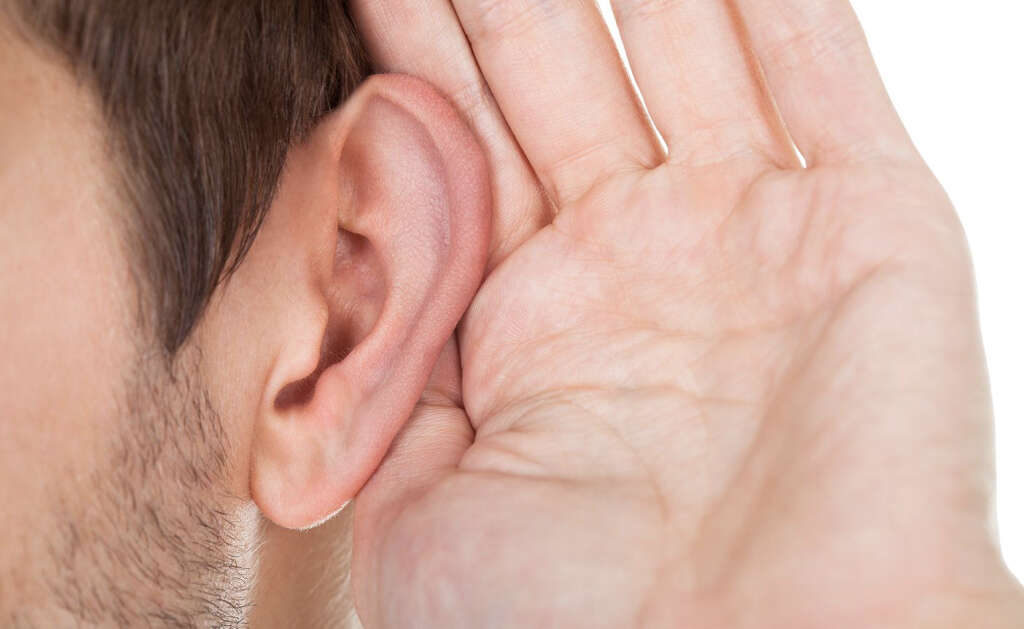
Symptom #5: Loss of Balance
Dizziness or loss of balance is one of the common symptoms of Meniere’s disease. It is in fact one of the first symptoms of the disease. This is because the disease effects the tubes located in the inner ear that are responsible for maintenance of balance. Once the functions of the inner ear are disrupted, balance is one of the affected functions.
Dizziness is a vague symptom that is described by patients as the inability to stay steady on their feet. The world around them is moving while they are just standing. If you feel dizzy, it’s recommended that you avoid driving, walking, or operating machinery.

Symptom #6: Nausea
Nausea is one more common symptom of Meniere’s disorder. Headache and dizziness are among the top reasons for nausea. Meniere’s disease causes headache and dizziness, which subsequently cause nausea.
Nausea is associated with vomiting and diarrhea. The discomfort consists of recurring attacks with each ranging between half an hour and a day. Usually, the attacks are short. However, the sensation of nausea can be very strong. The problem is that many people only get treatment for the nausea symptom without treating its root cause. There are many medications which you can use, including those used for motion sickness. However, it is better to undergo a checkup by a doctor so that you can get appropriate treatment.

Symptom #7: Headache
Although there are many causes of headaches including diet and lifestyle, a headache can also be a sign of Meniere’s disease. Severe headaches and migraines should, therefore, not be overlooked.
Migraines themselves can effect the inner ear. If a patient with a migraine got Meniere’s disease too, the latter will exaggerate the condition of both the migraine and inner ear damage. There are some pieces of evidence that suggest that migraines are behind all the problems that happen in the inner ear. But these suggestions need more studies to support them. If besides a headache you also experience loss of balance, vertigo, and tinnitus then you should get a checkup as soon as possible to avoid further damage in the inner ear.

Symptom #8: Sweating
Meniere’s disease manifests in episodes or attacks. During each attack, patients suffer from symptoms like vertigo, nausea, dizziness, and vomiting. Additionally, patients may also suffer from cold sweats, which can cause a lot of discomfort.
If you have Meniere’s disease, the most likely cause of cold sweats is vertigo. This is why they are reduced significantly when you take vertigo medication. And depending on the severity of your condition, your doctor will decide whether to give you an anti-nausea medication or not. If the symptoms are severe, you should take it. Besides cold sweats, vertigo is also the main cause of vomiting, diarrhea, chills, and nausea. Most of these symptoms are, therefore, relieved once the patient takes vertigo medication.
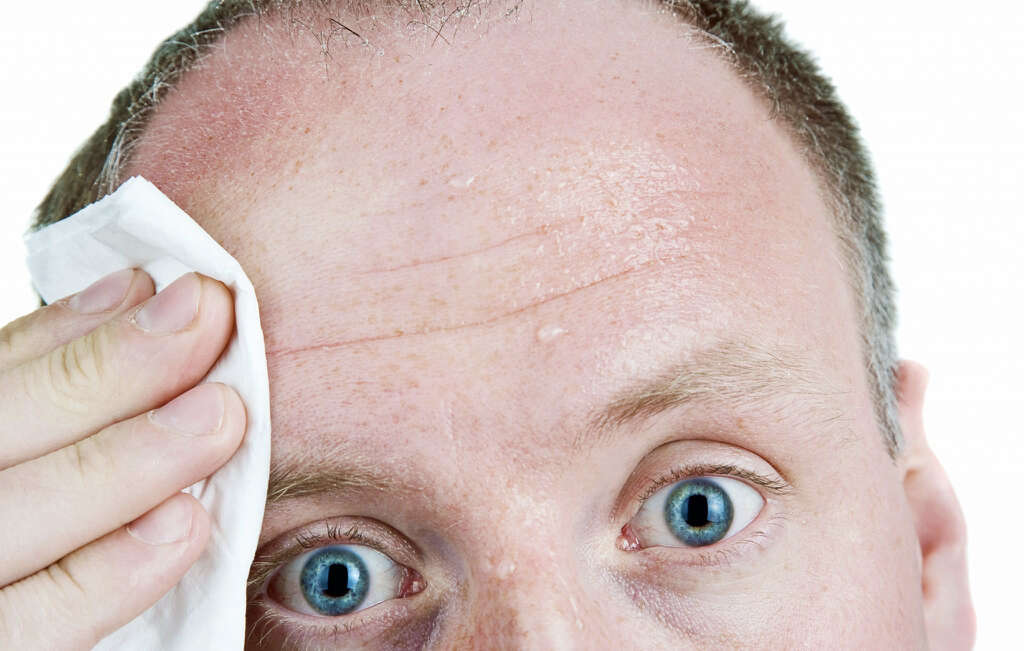
Symptom #9: Pain in the Ear
There are many reasons behind pain in the ear such as infections, inflammation, foreign bodies, and Meniere’s disease. How the disease progresses can explain why it is painful. The disease is caused by the accumulation of an abnormal amount of fluid inside the inner ear, particularly the labyrinth, which is responsible for balance.
This fluid puts pressures in the ear and causes pain. The pressure and pain can put a lot of psychological pressure on the patient. Once the fluid is drained, the pressure is released, which also relieves pain. Pain in the ear can be extremely distressing and should, therefore, be treated immediately.

Symptom #10: Abdominal Discomfort
Abdominal discomfort and gastrointestinal problems are quite common in Meniere’s patients. Vertigo is the main initiator of these symptoms. Diarrhea is the worst of these problems because it can continue for days after the attack. You are also likely to have nausea, vomiting, and abdominal pain together with diarrhea.
Meniere’s disease can cause serious diarrhea, which can lead to more complications. Severe diarrhea leads to loss of essential electrolytes and plenty of body fluids. This is why it is essential to stay hydrated when you have diarrhea and to also include electrolytes in your food and drinks. If you fail to increase your hydration and electrolytes intake, you might suffer from other health conditions.




